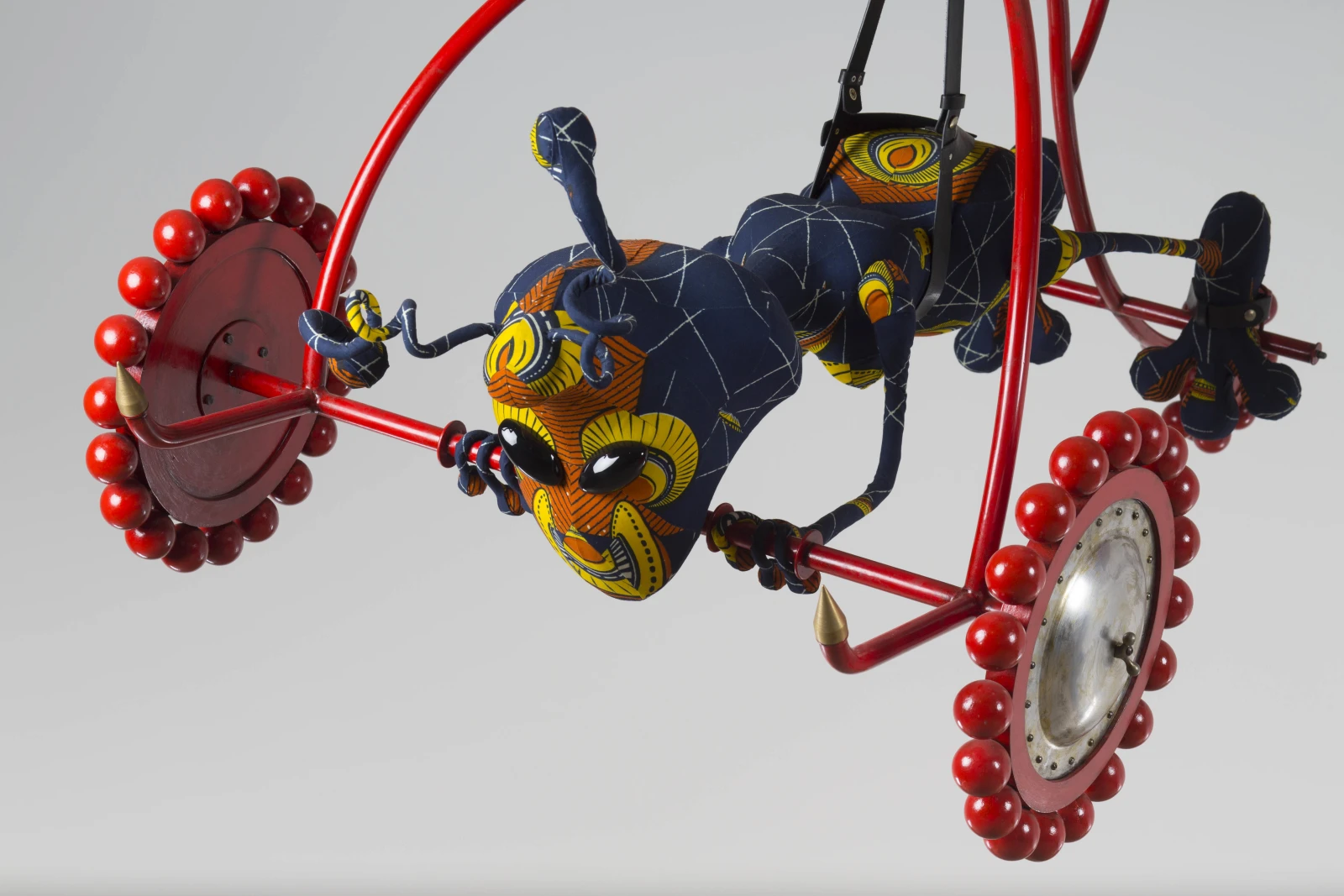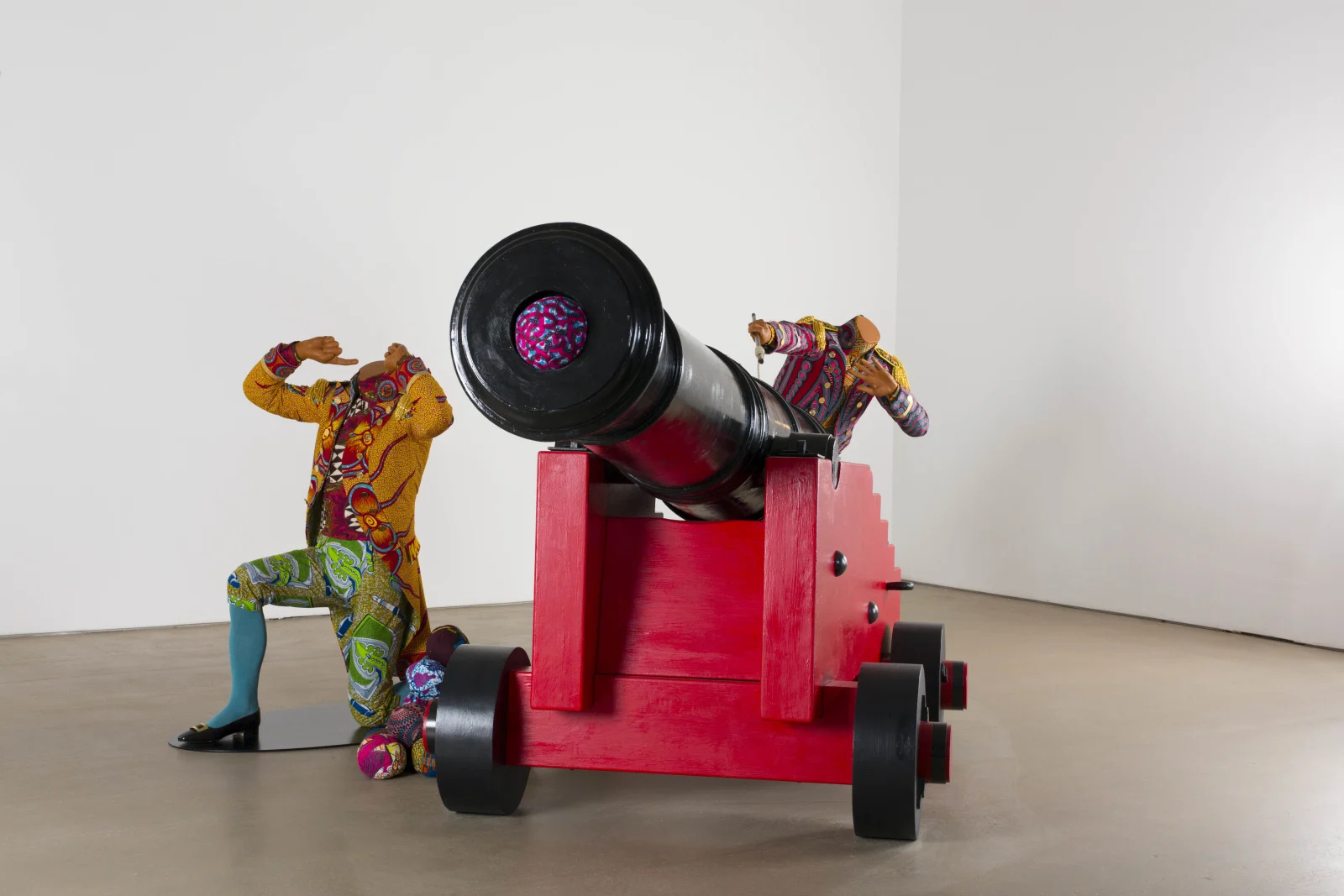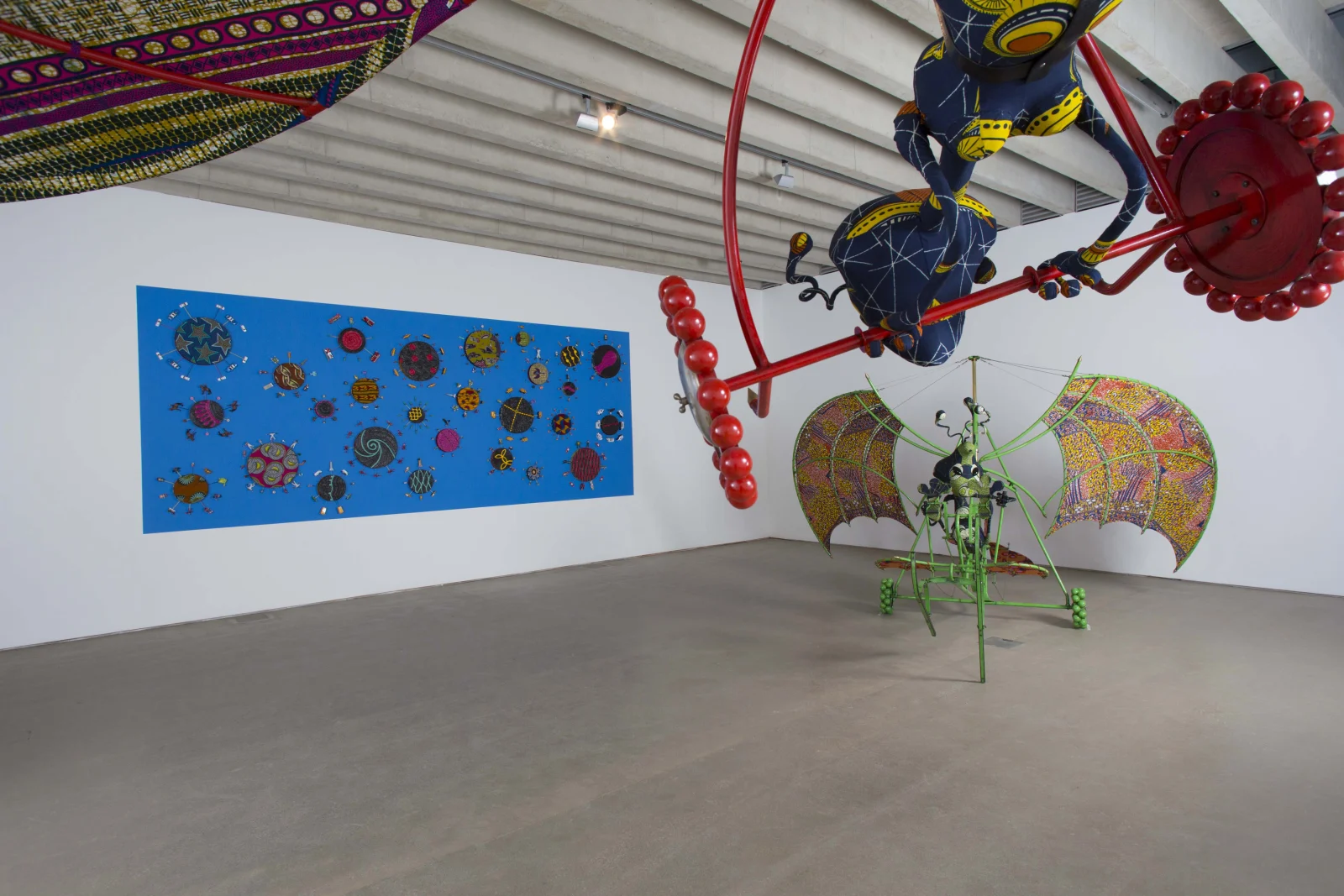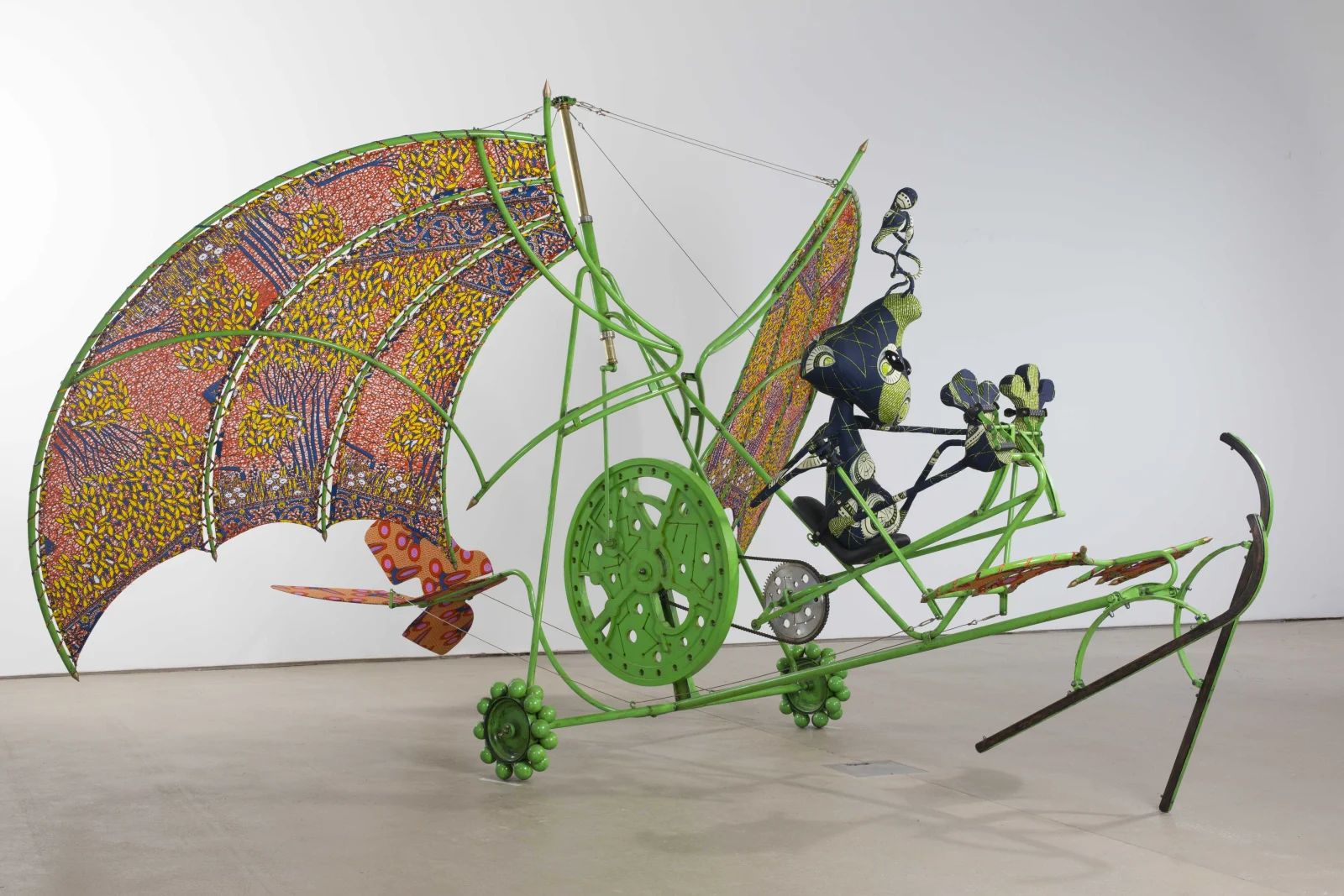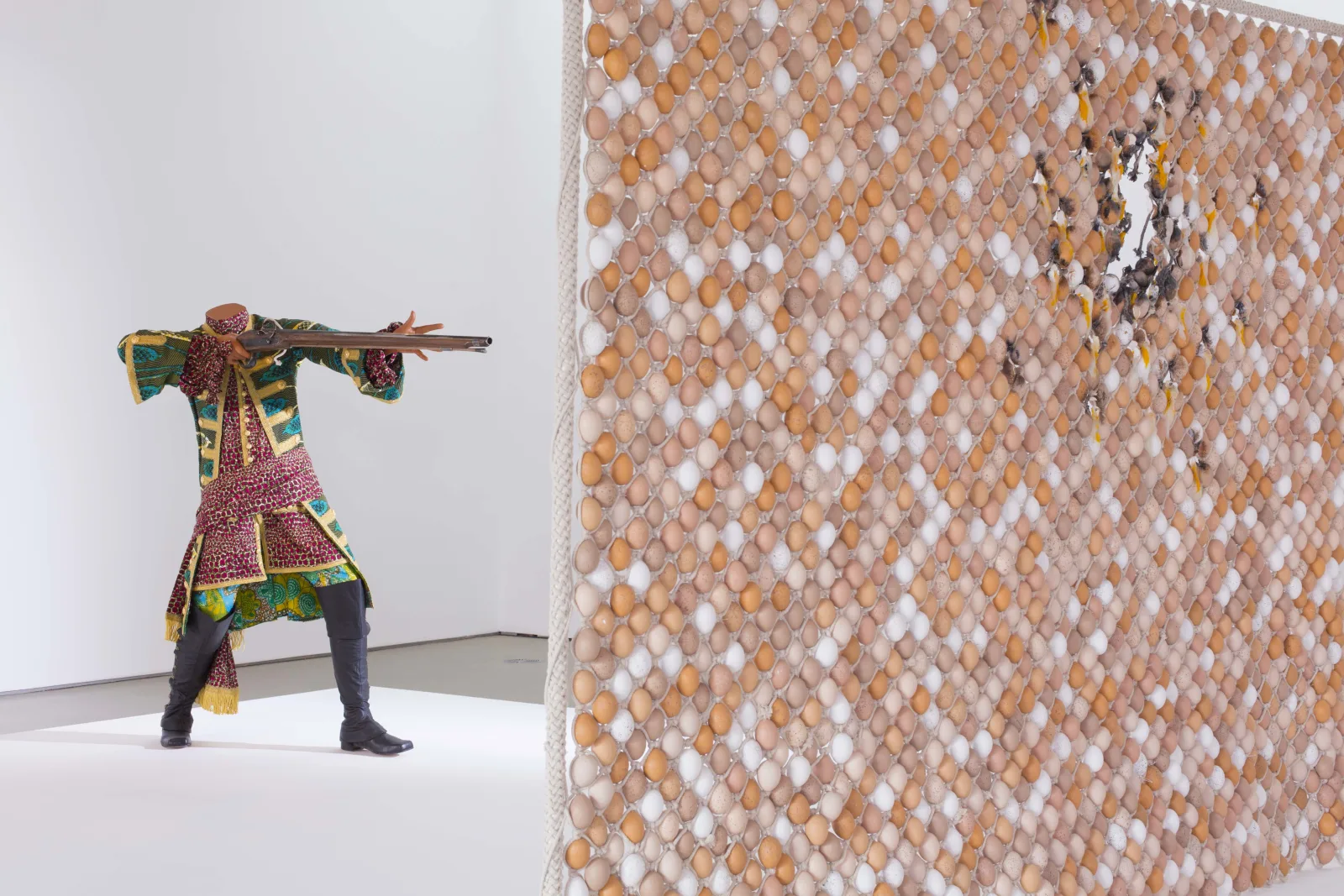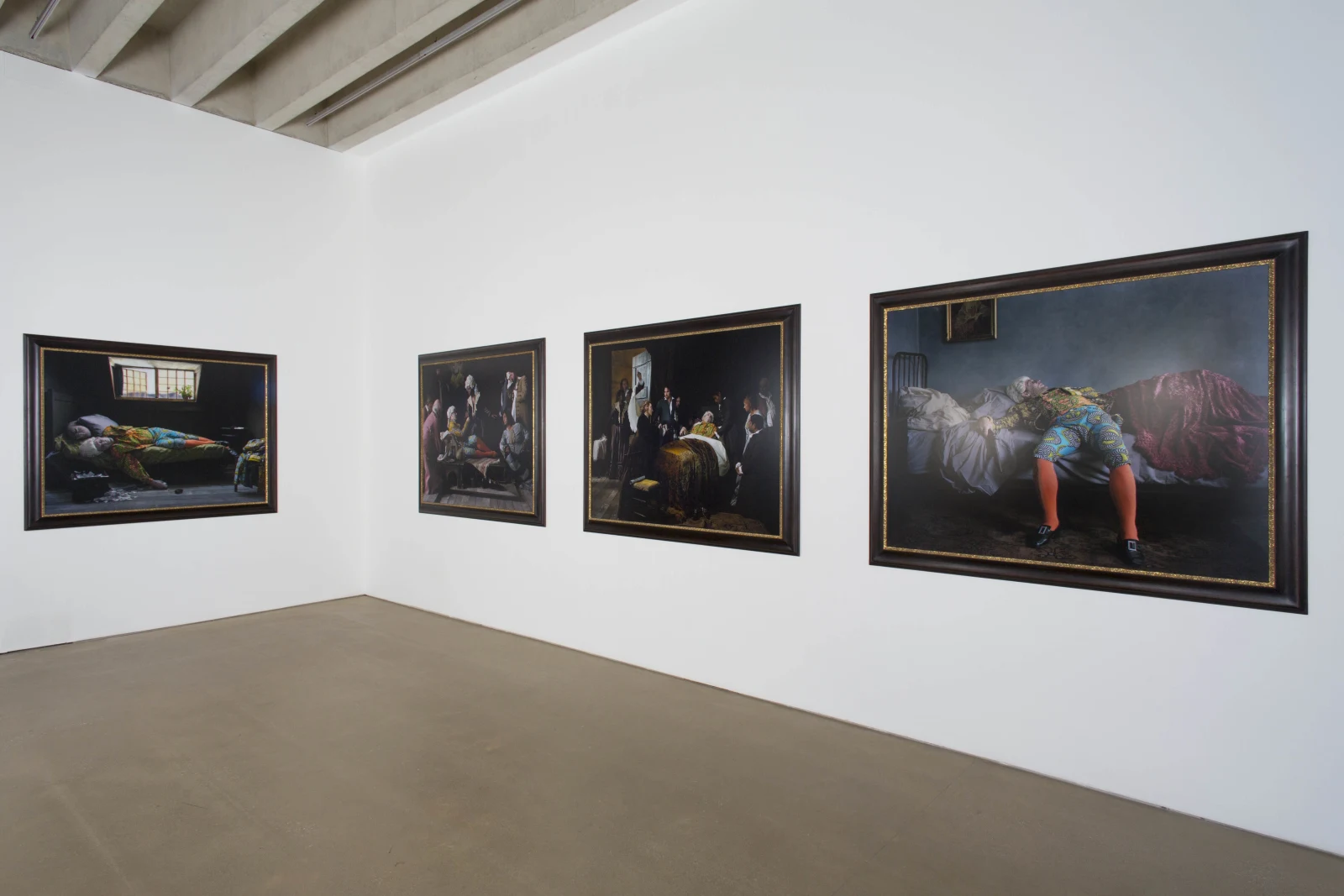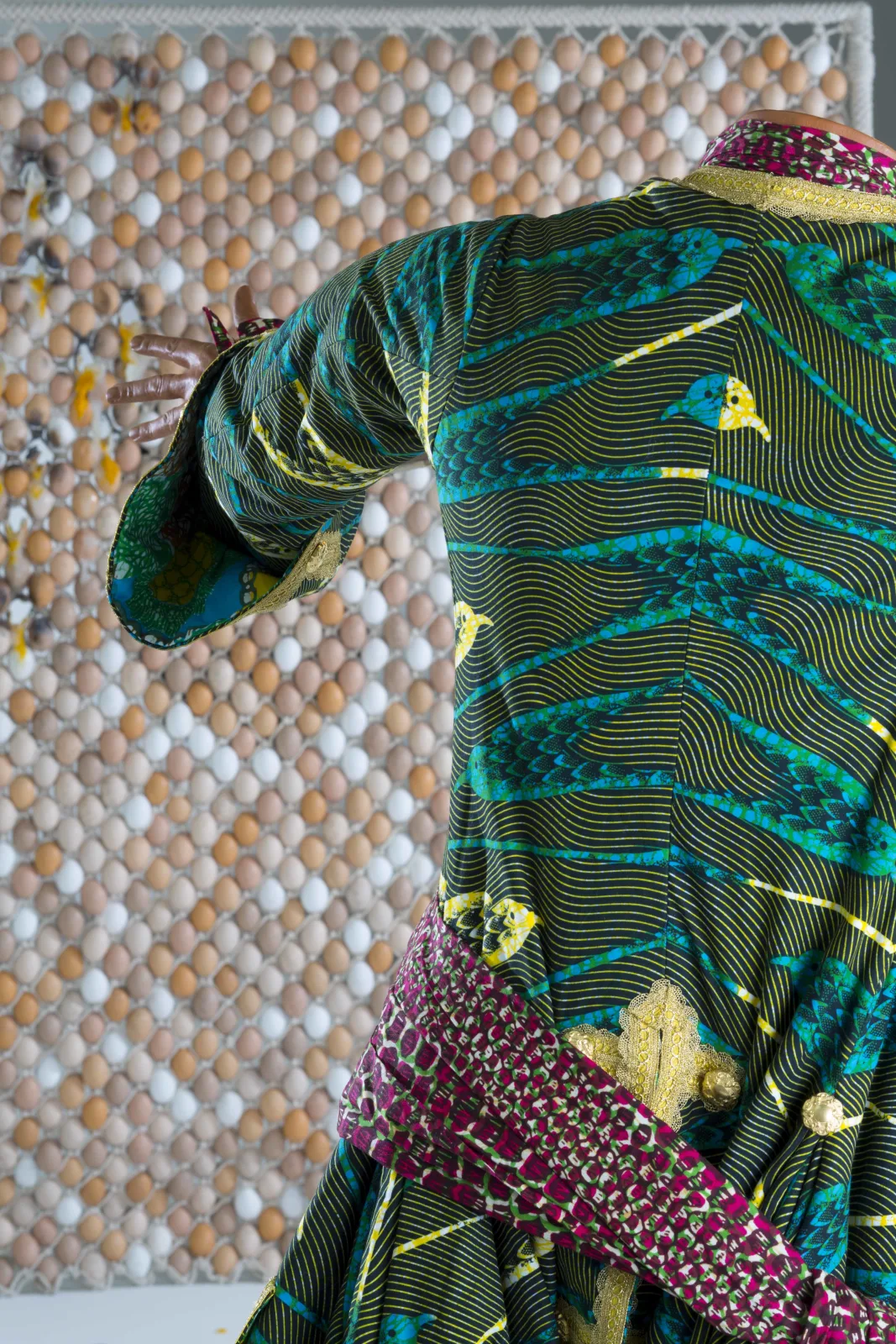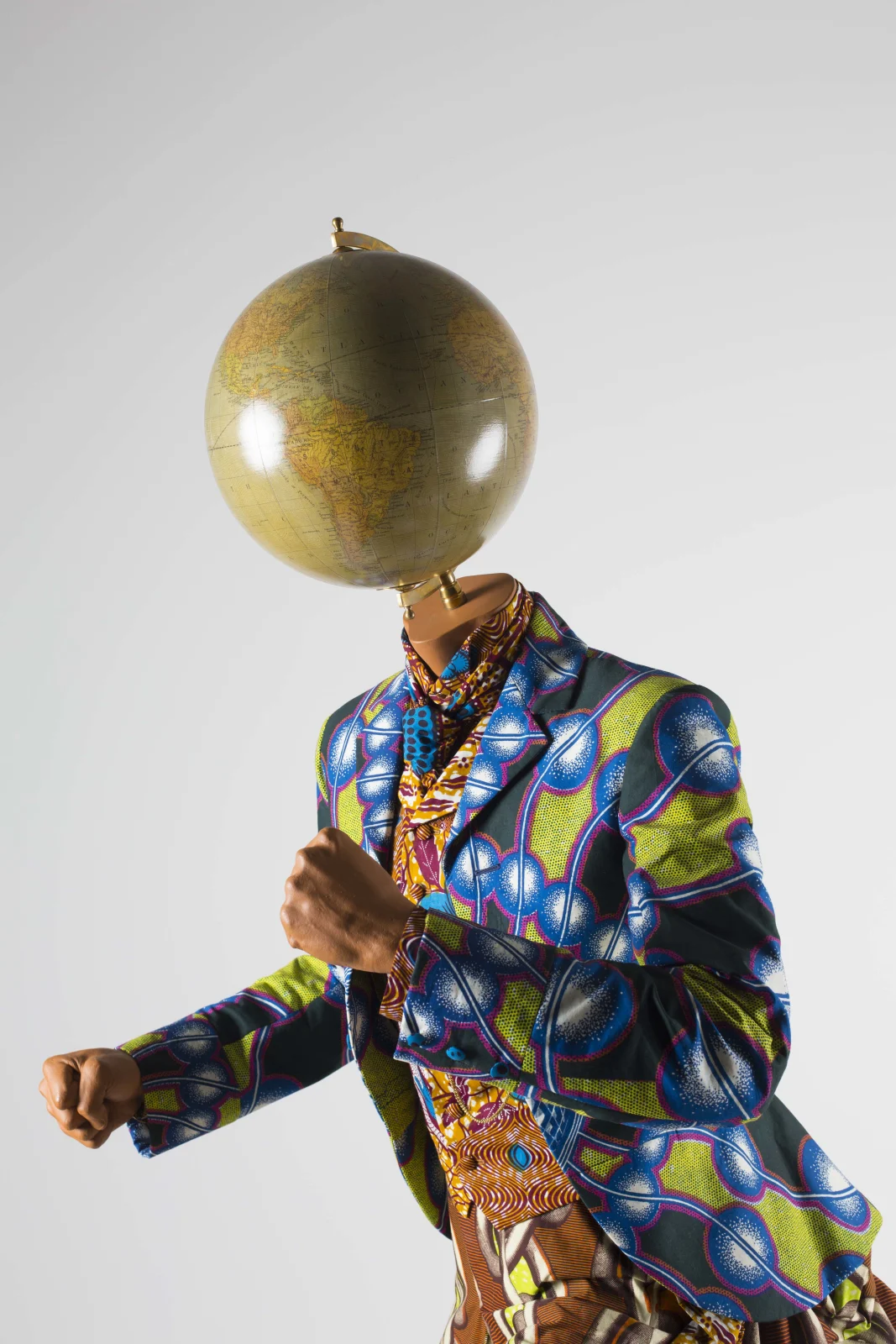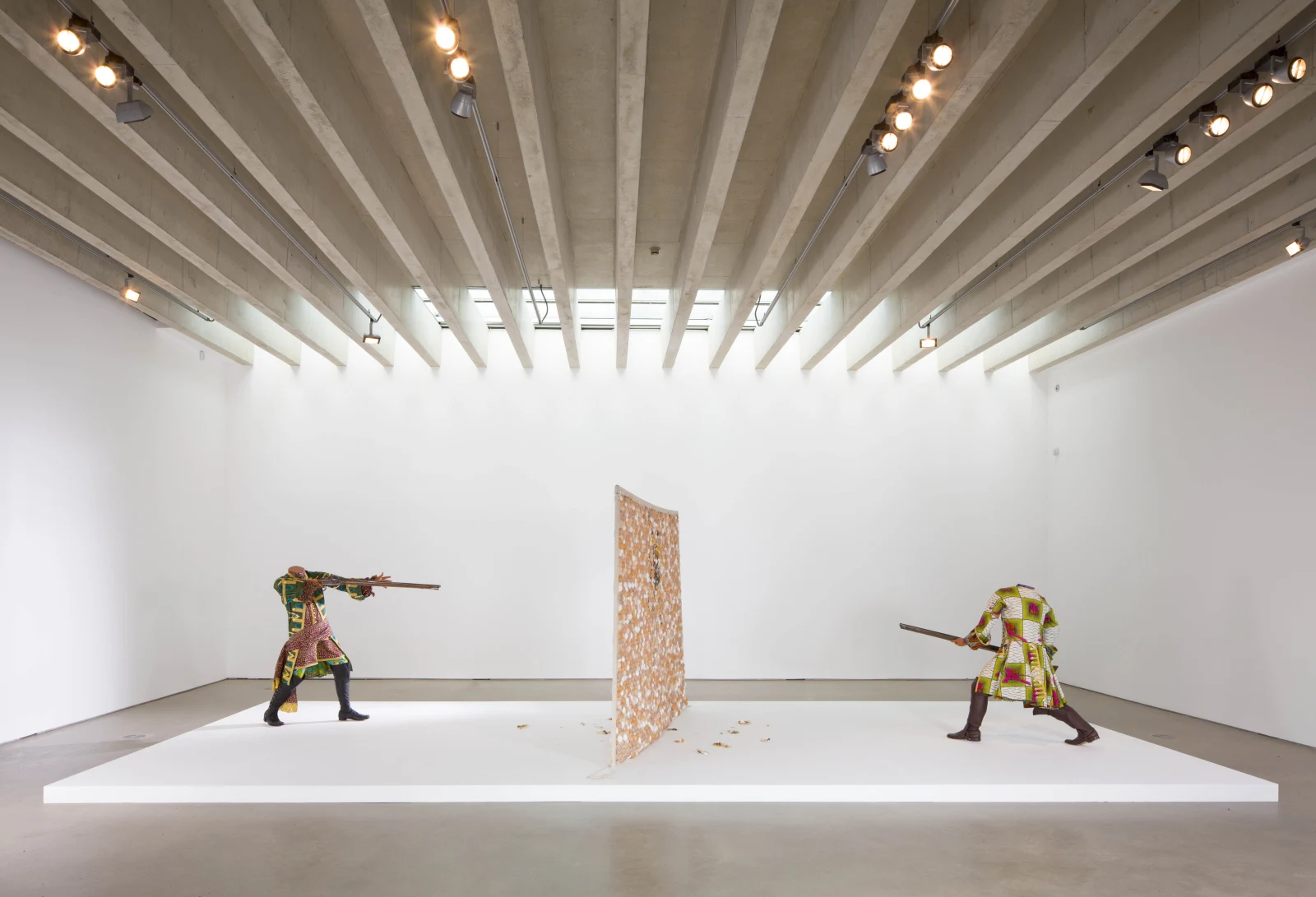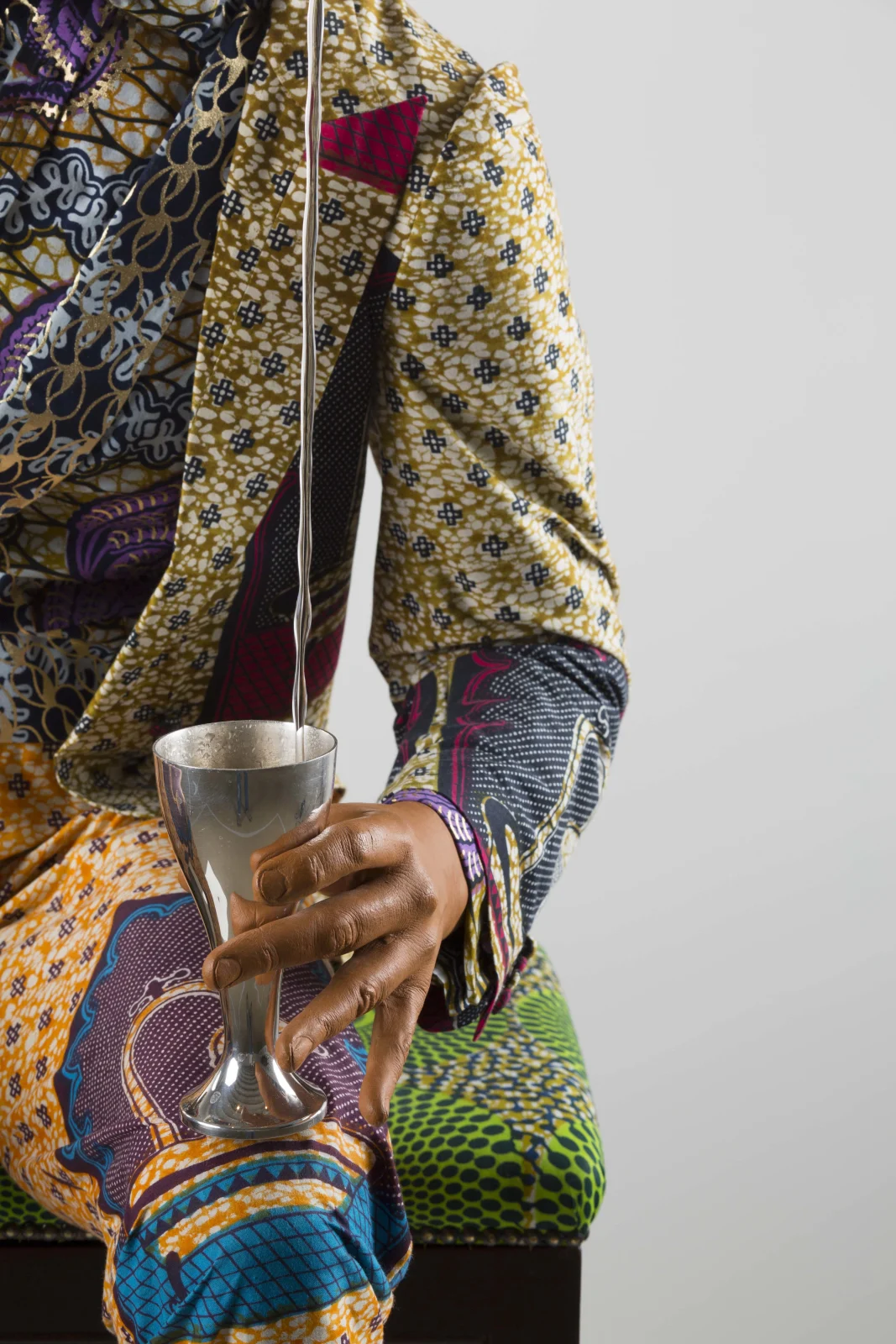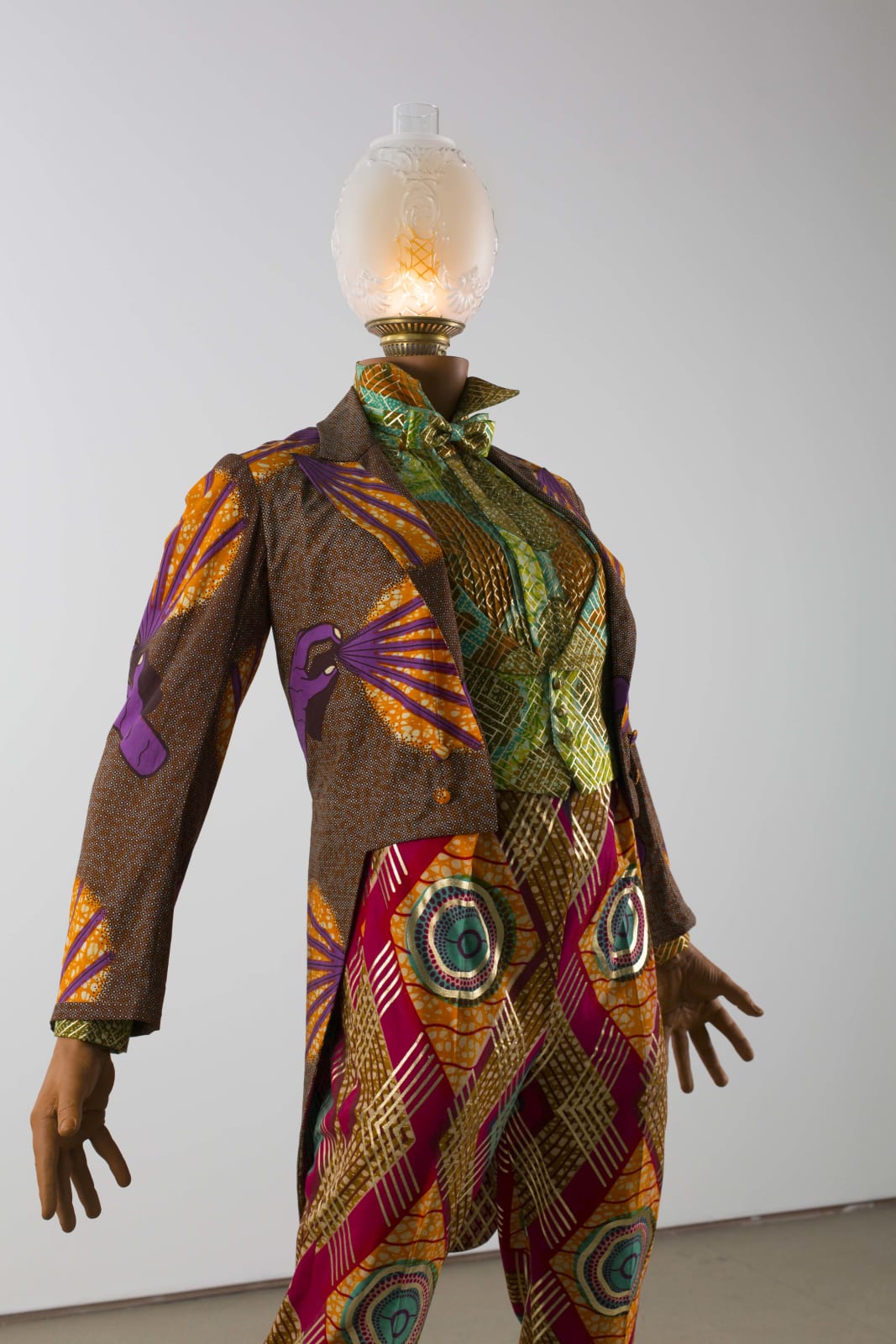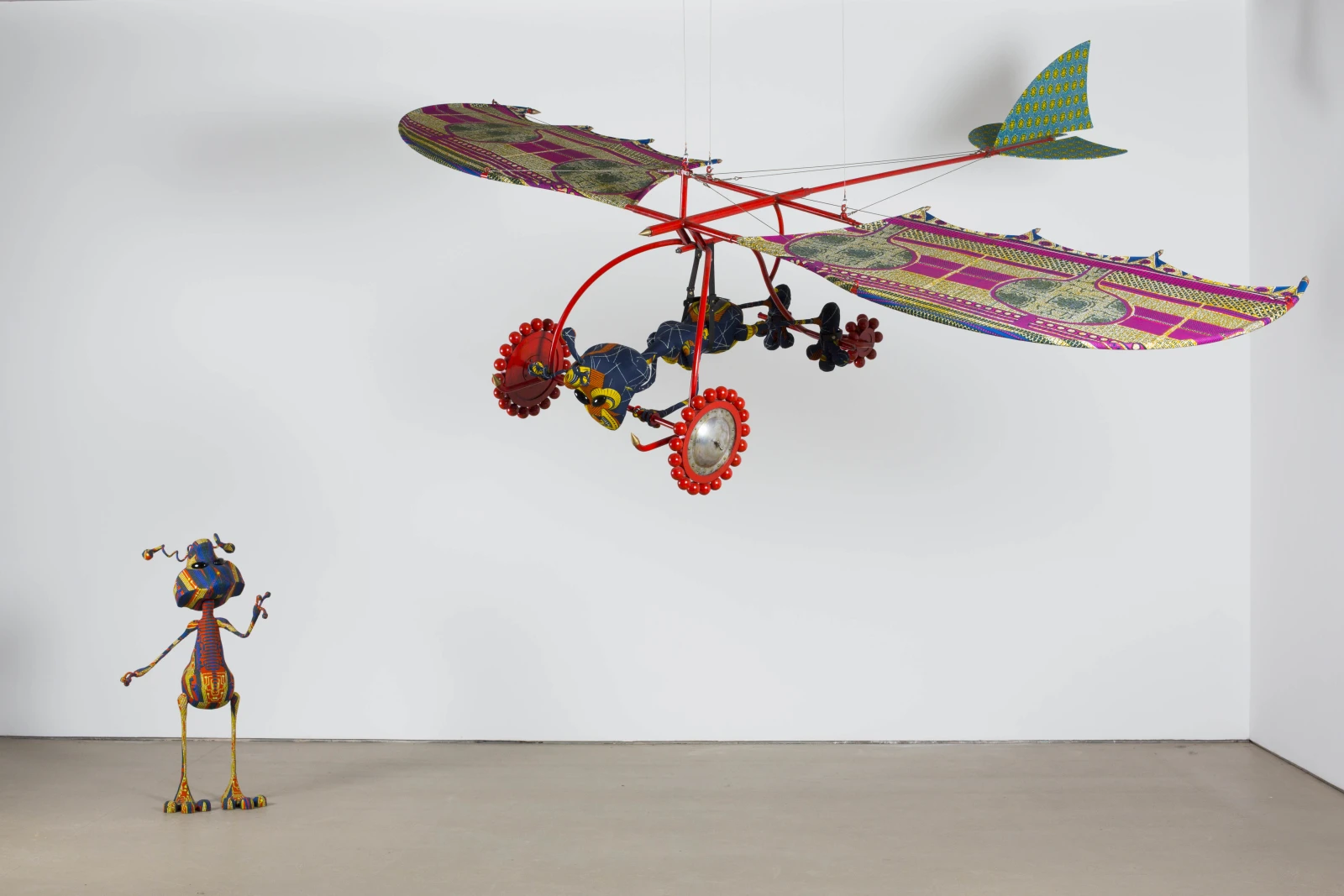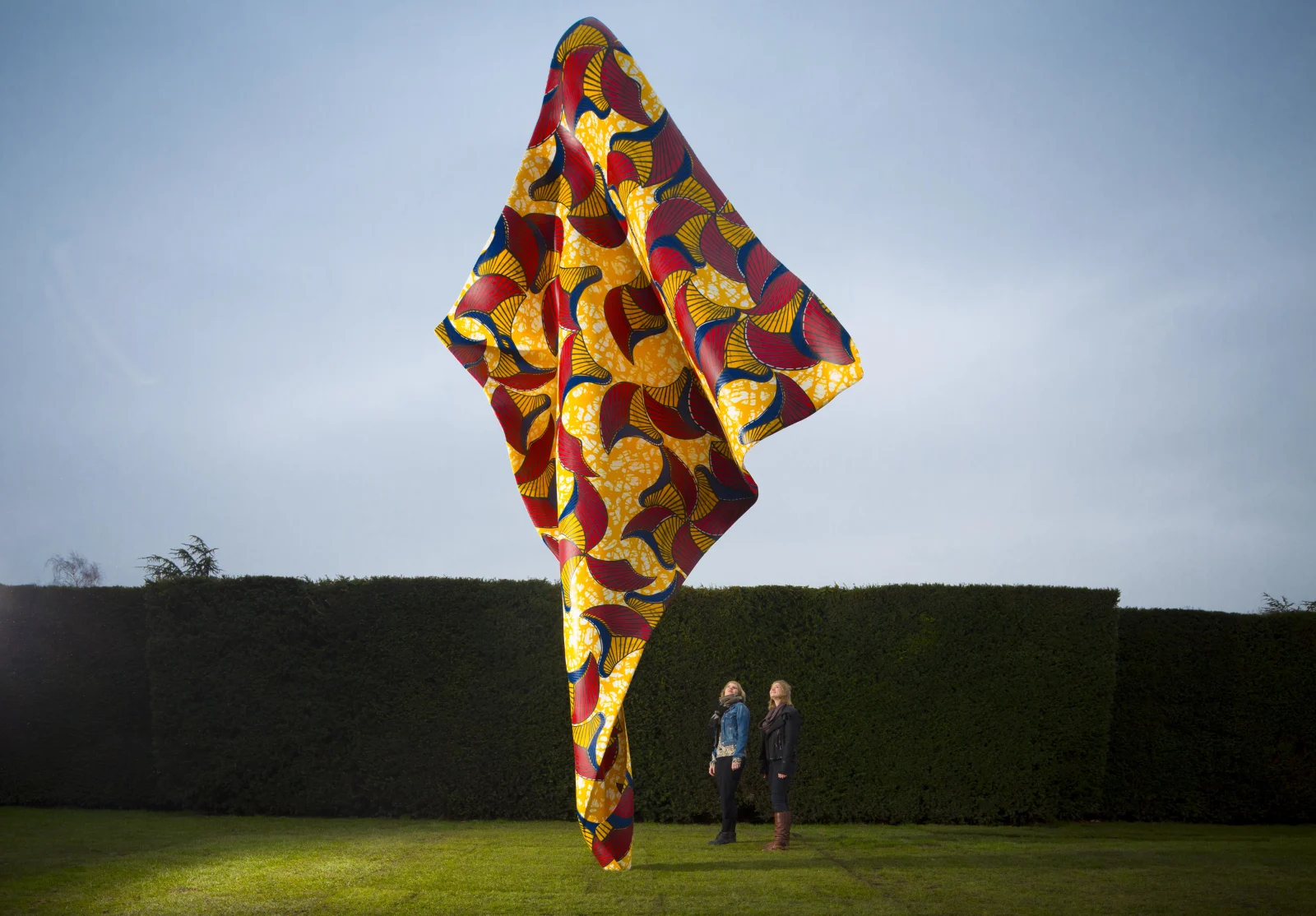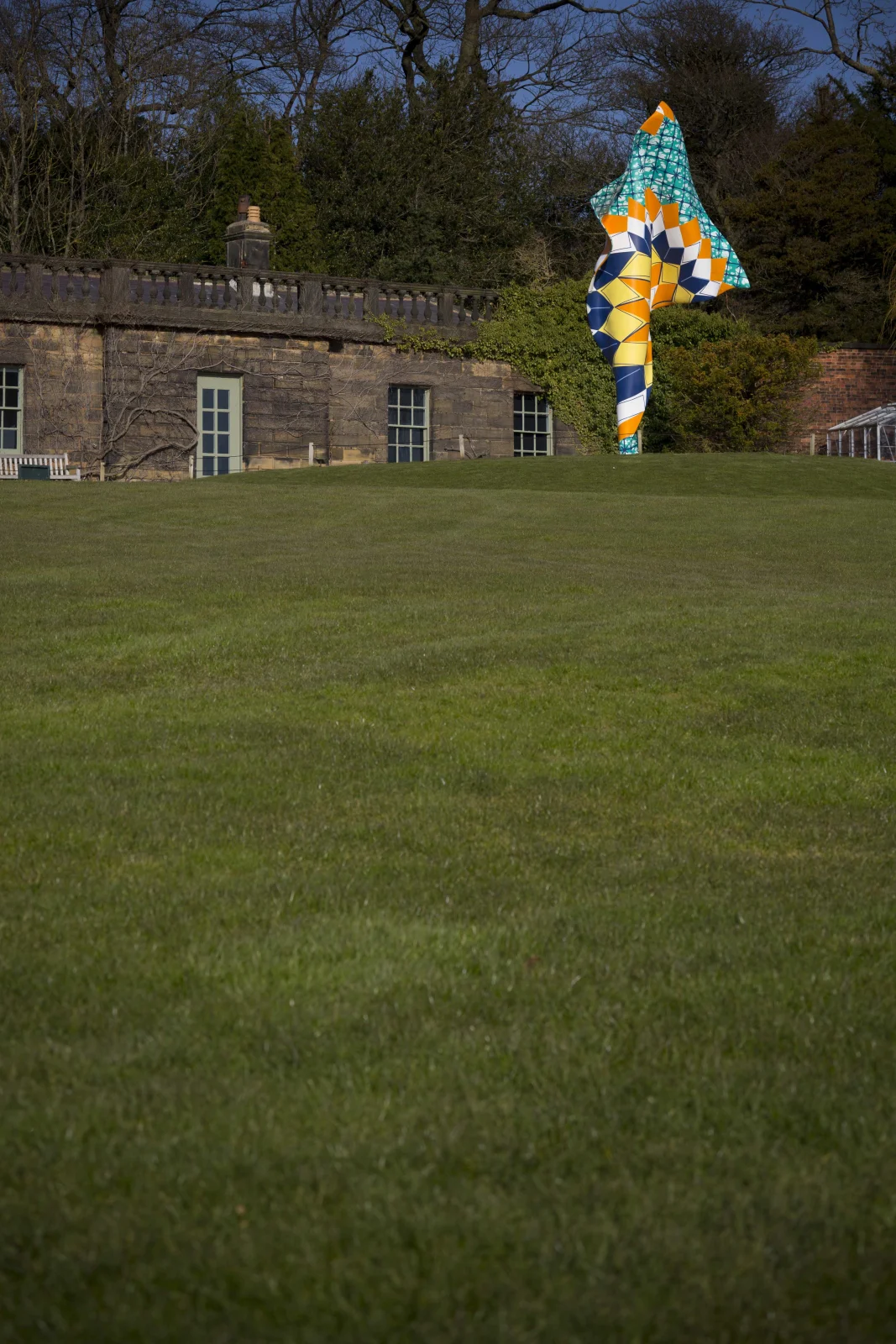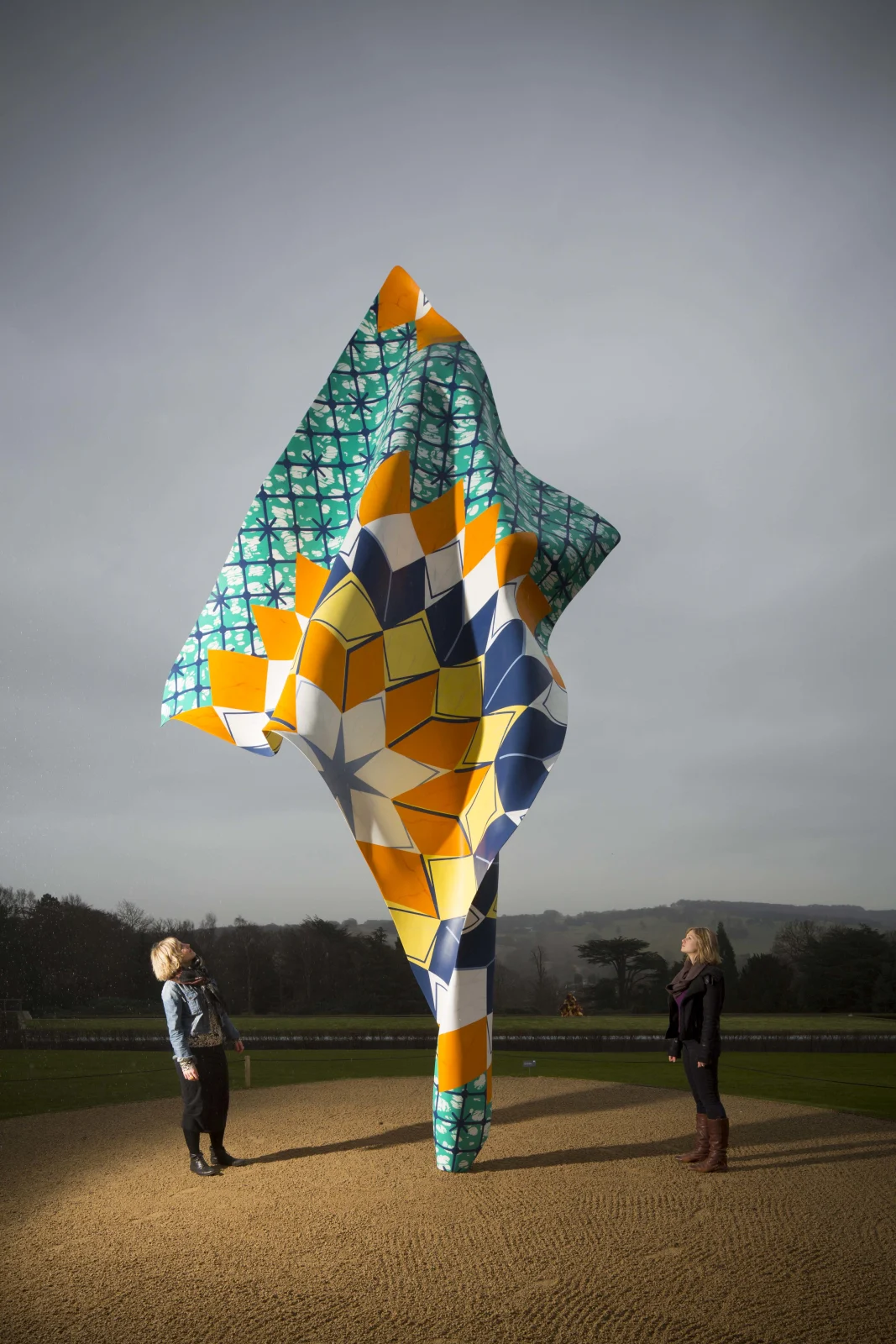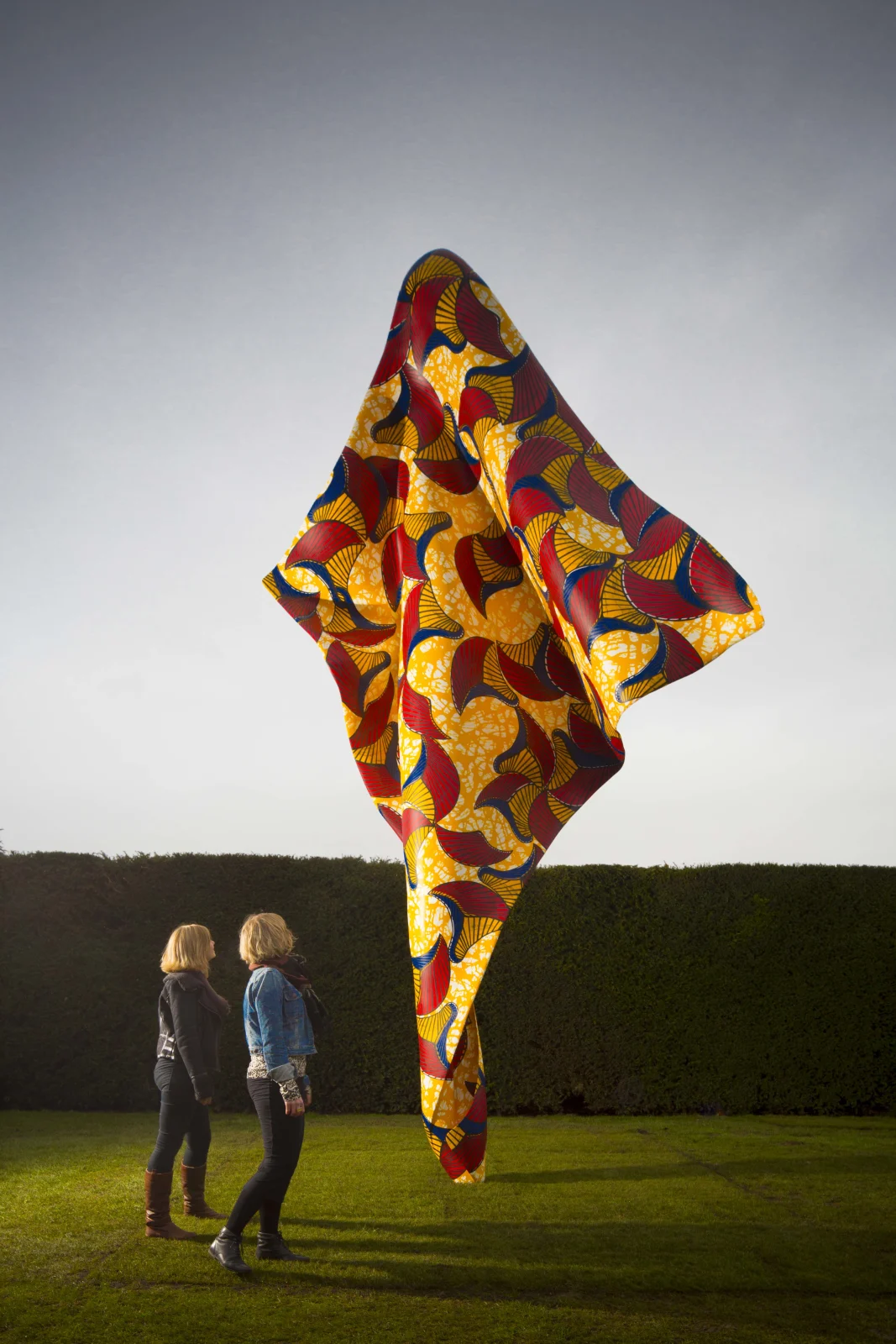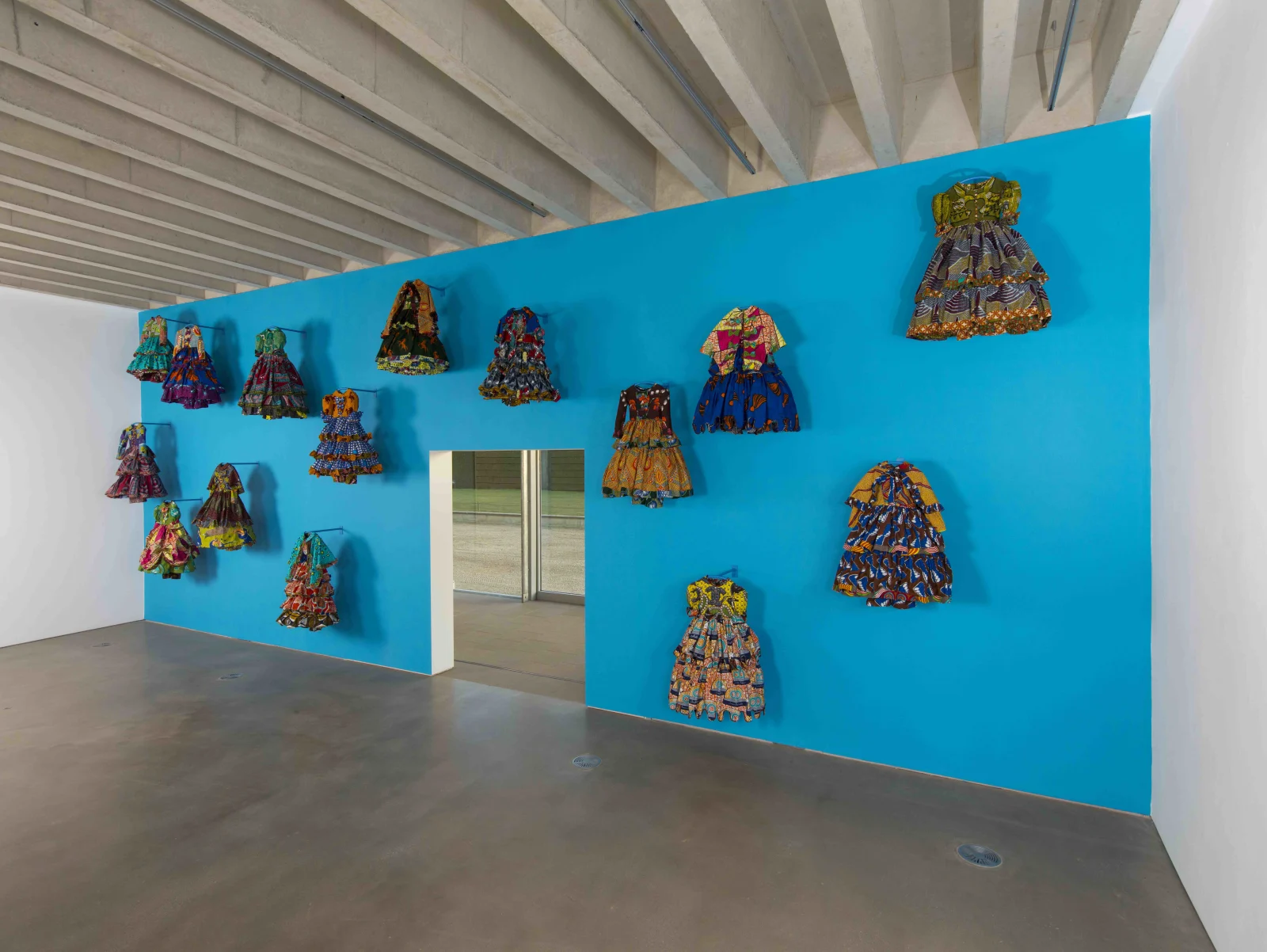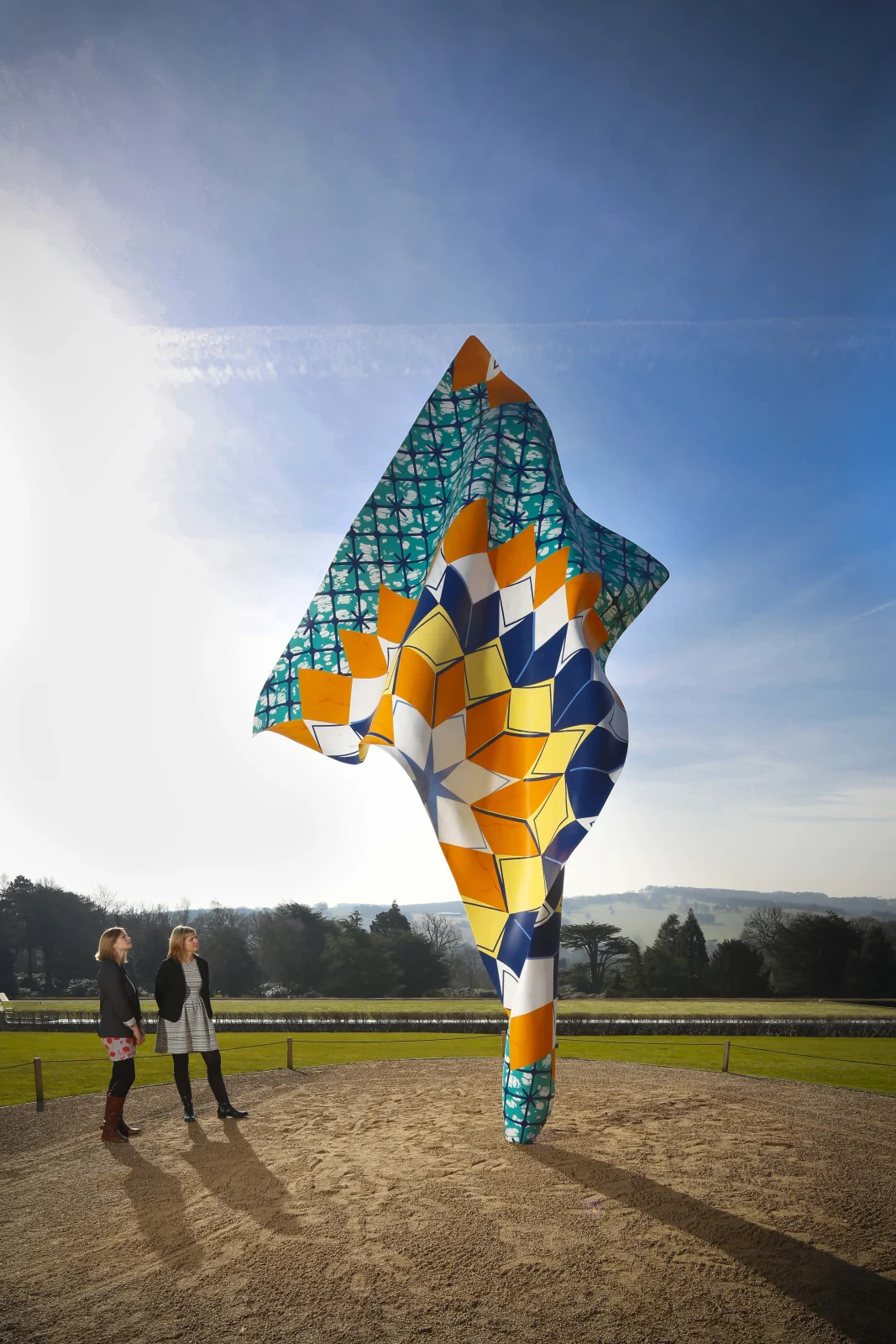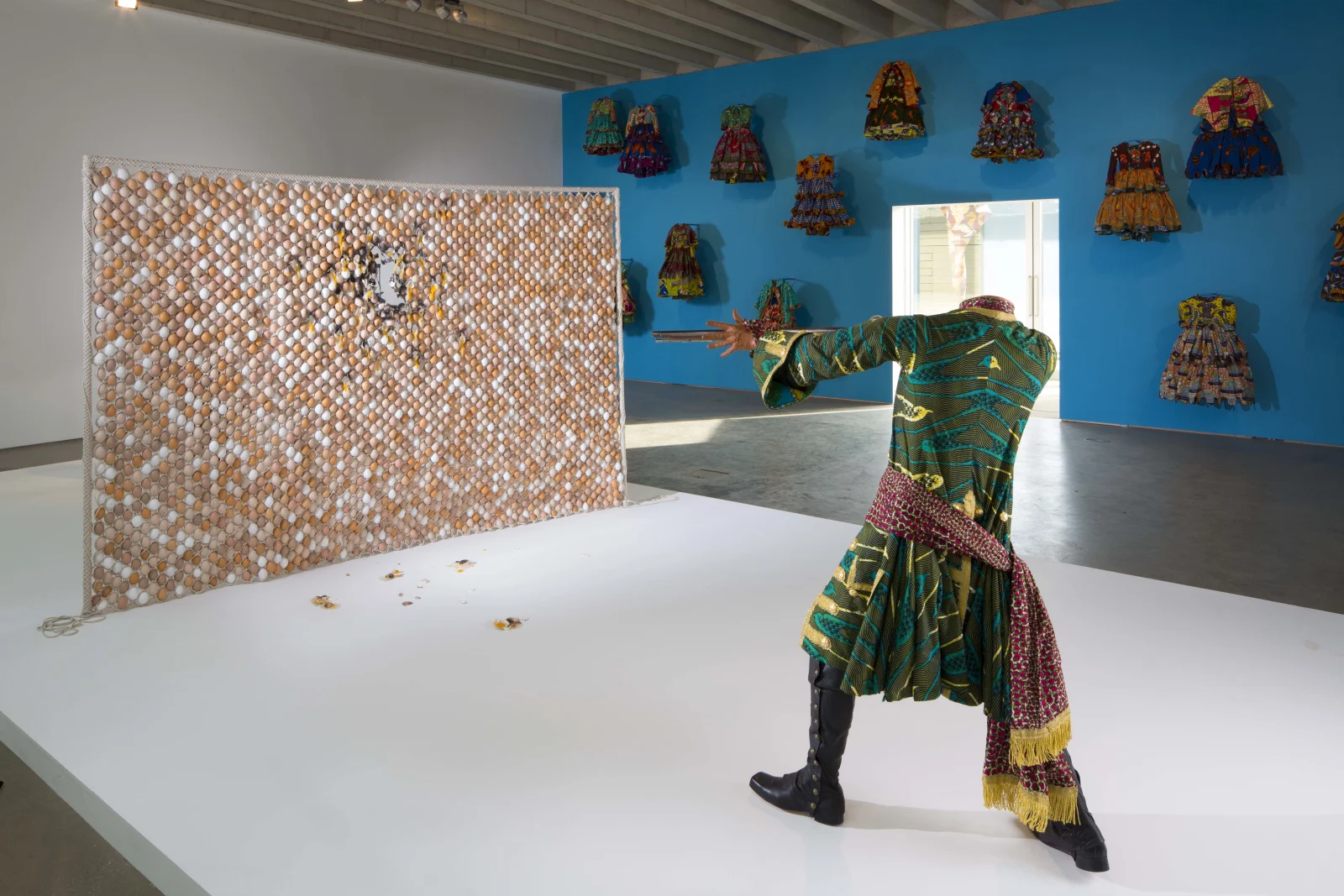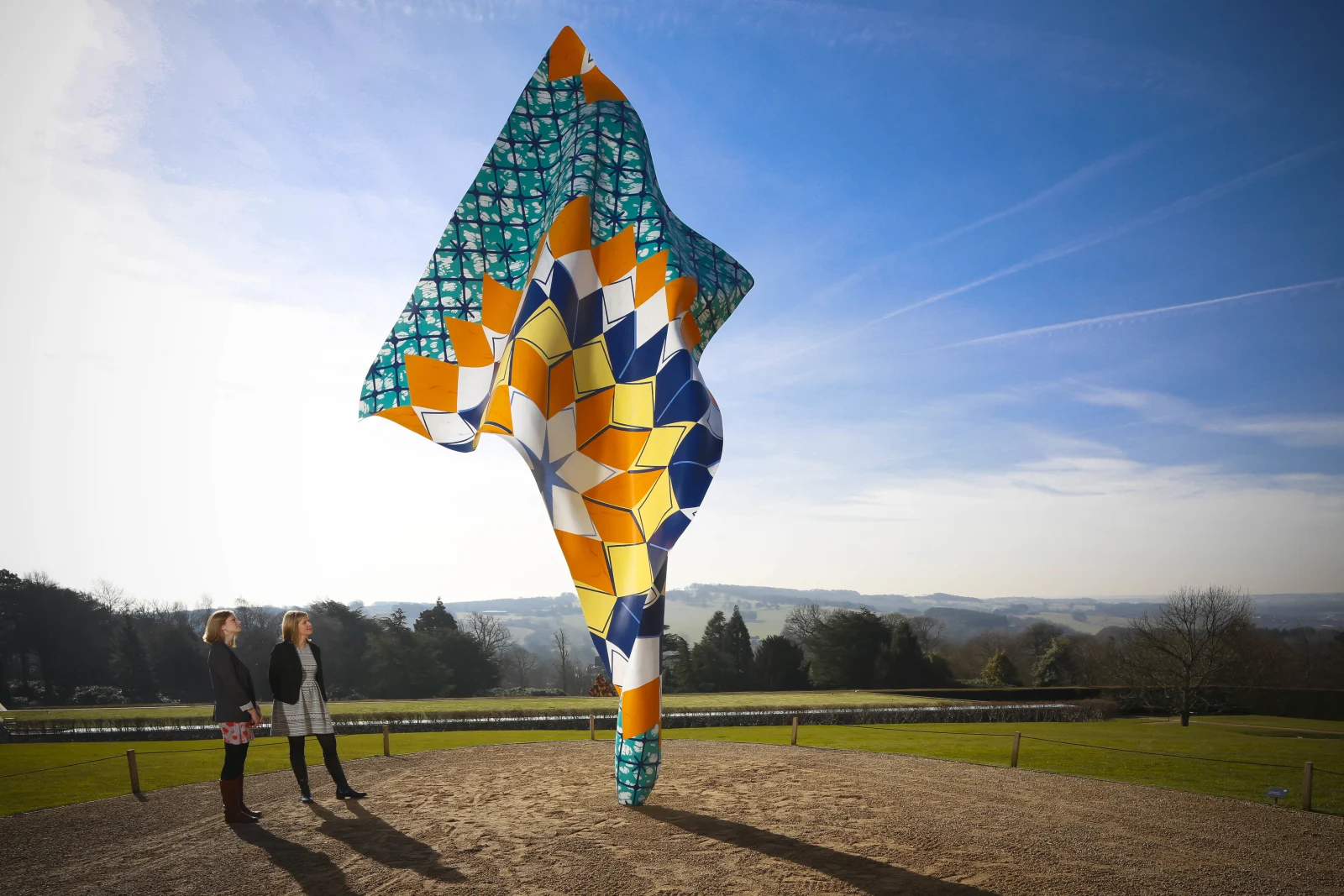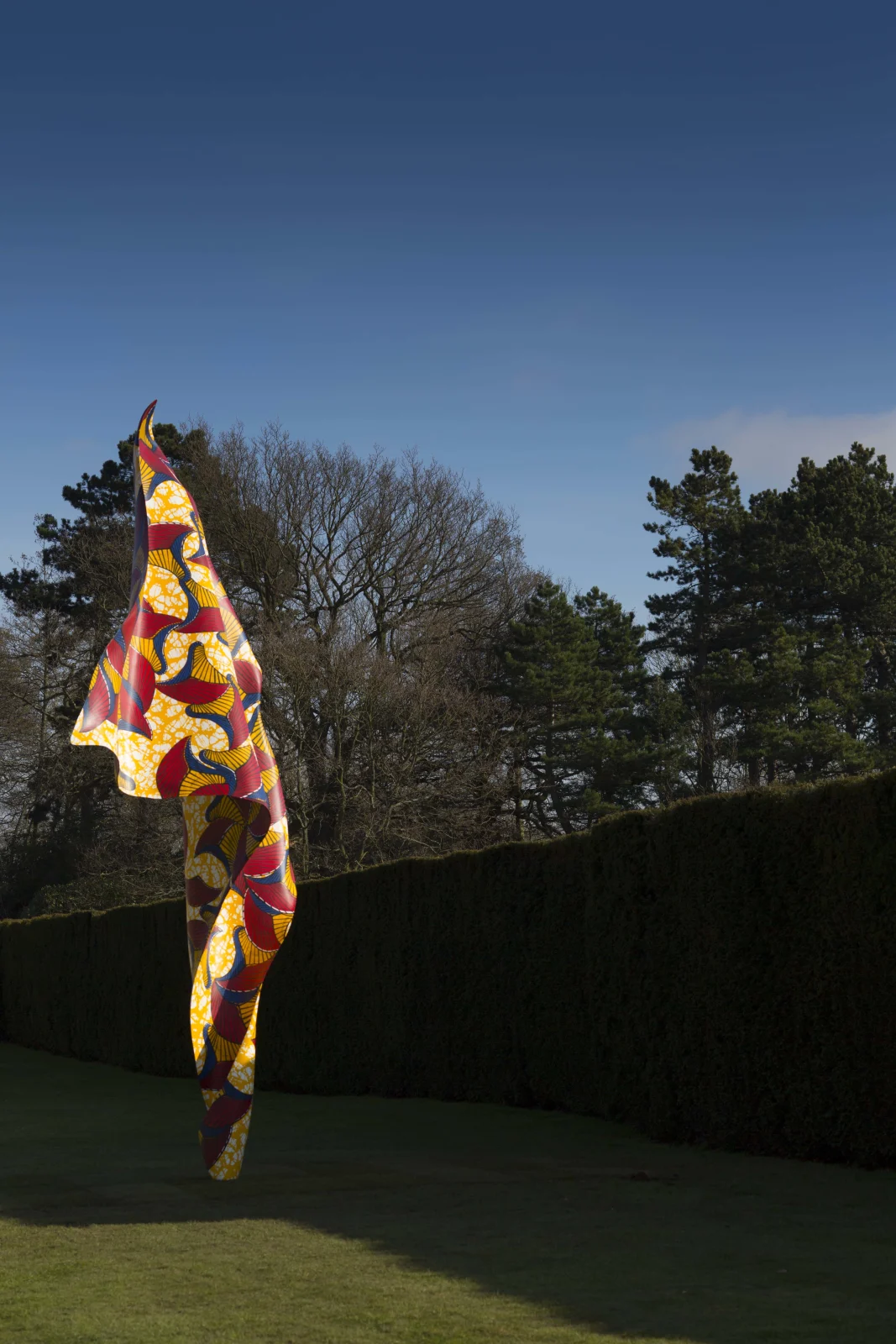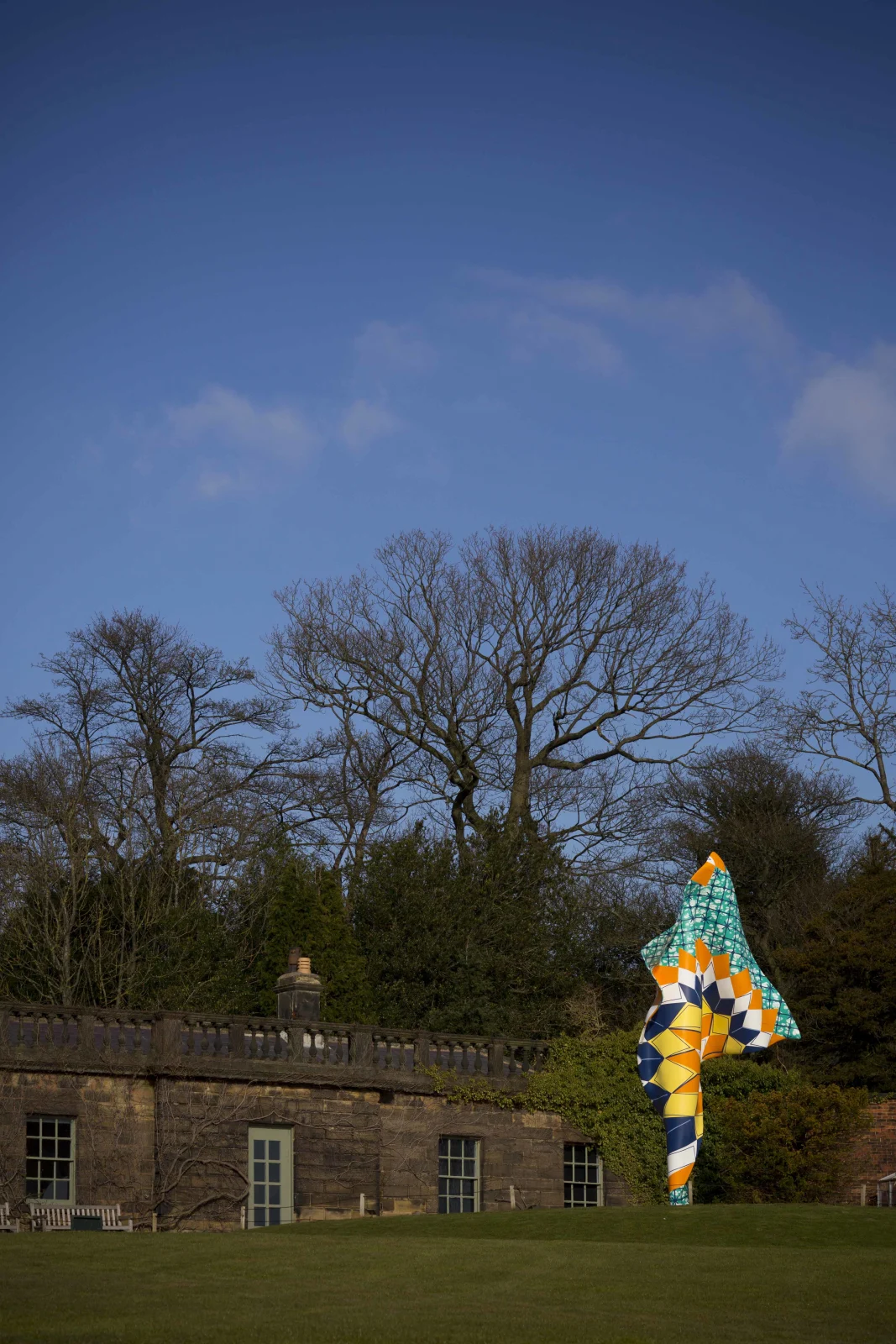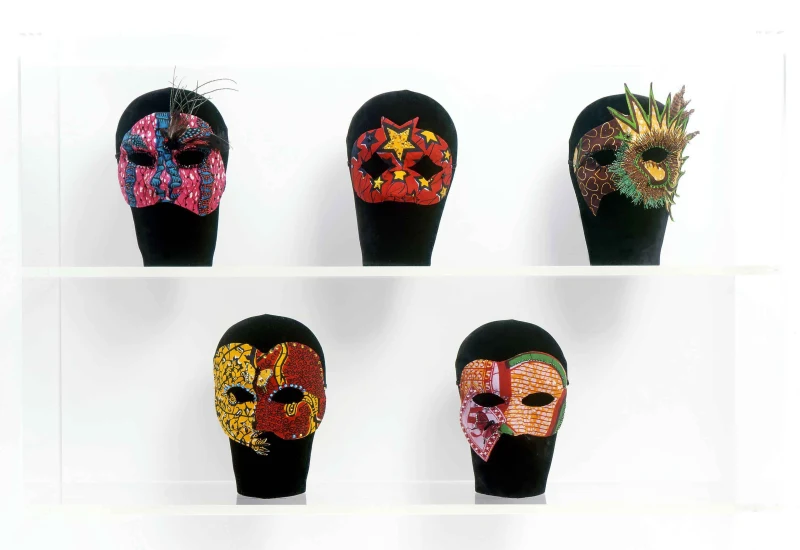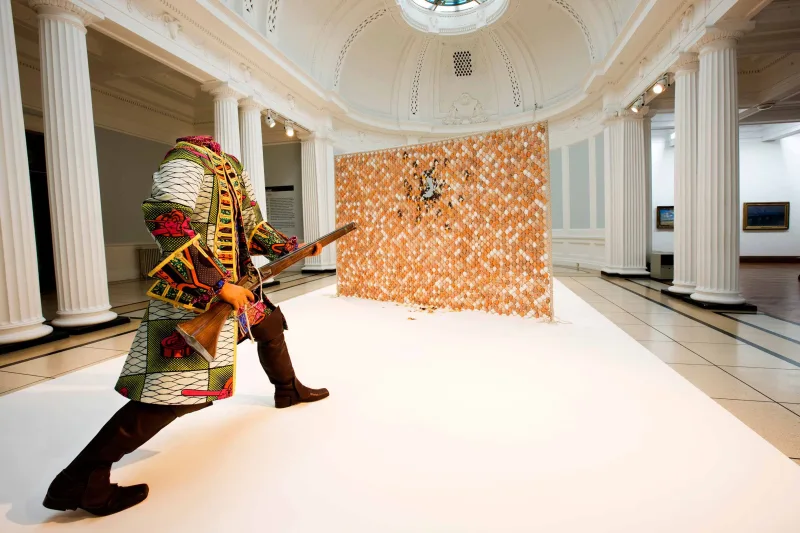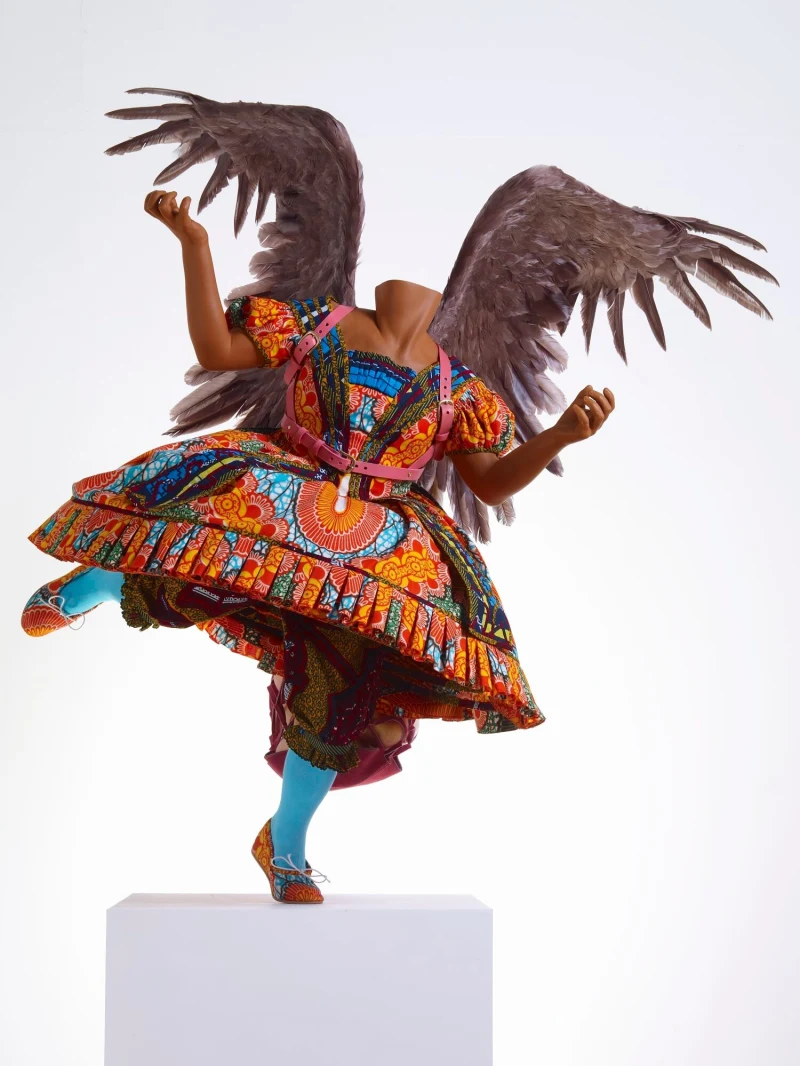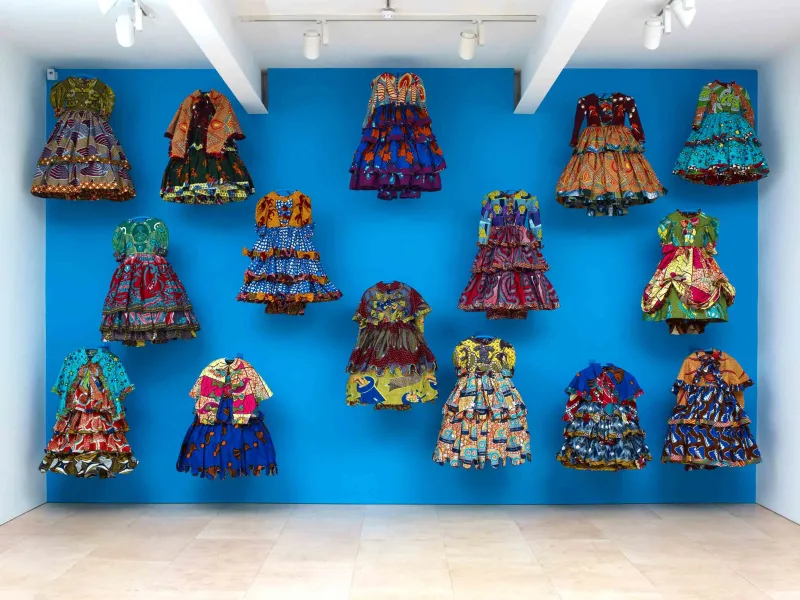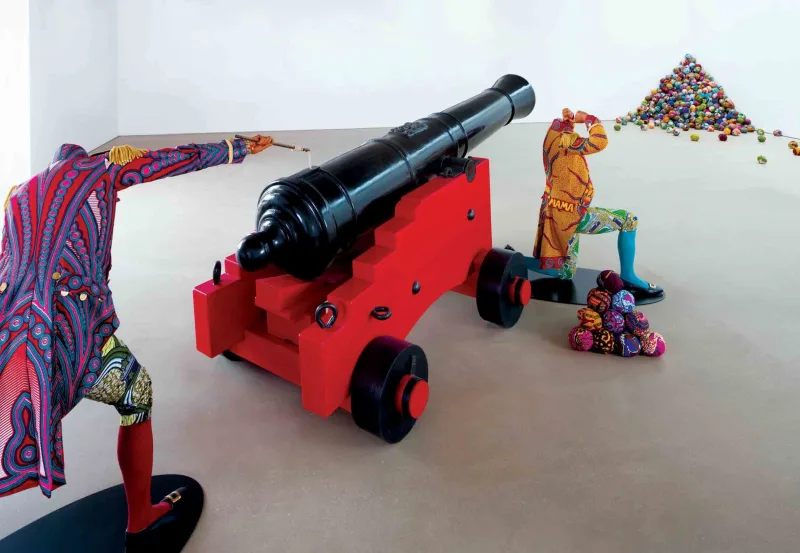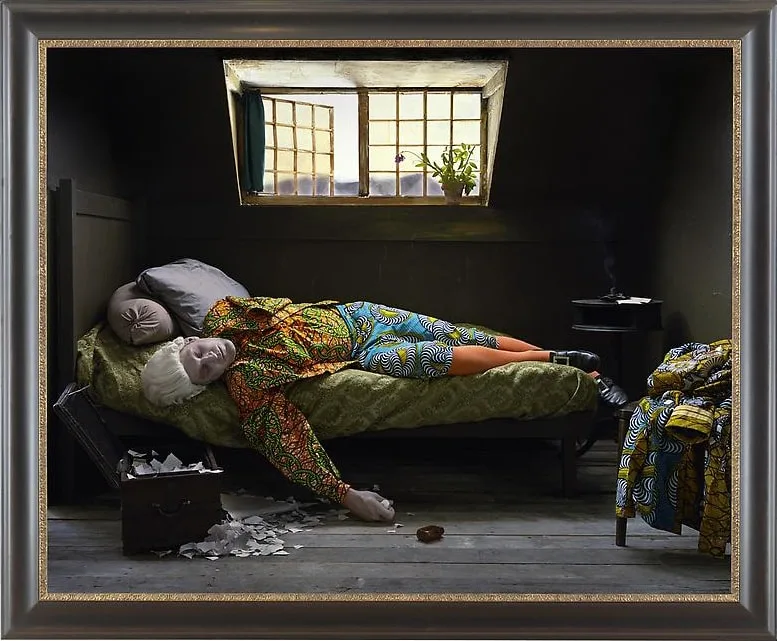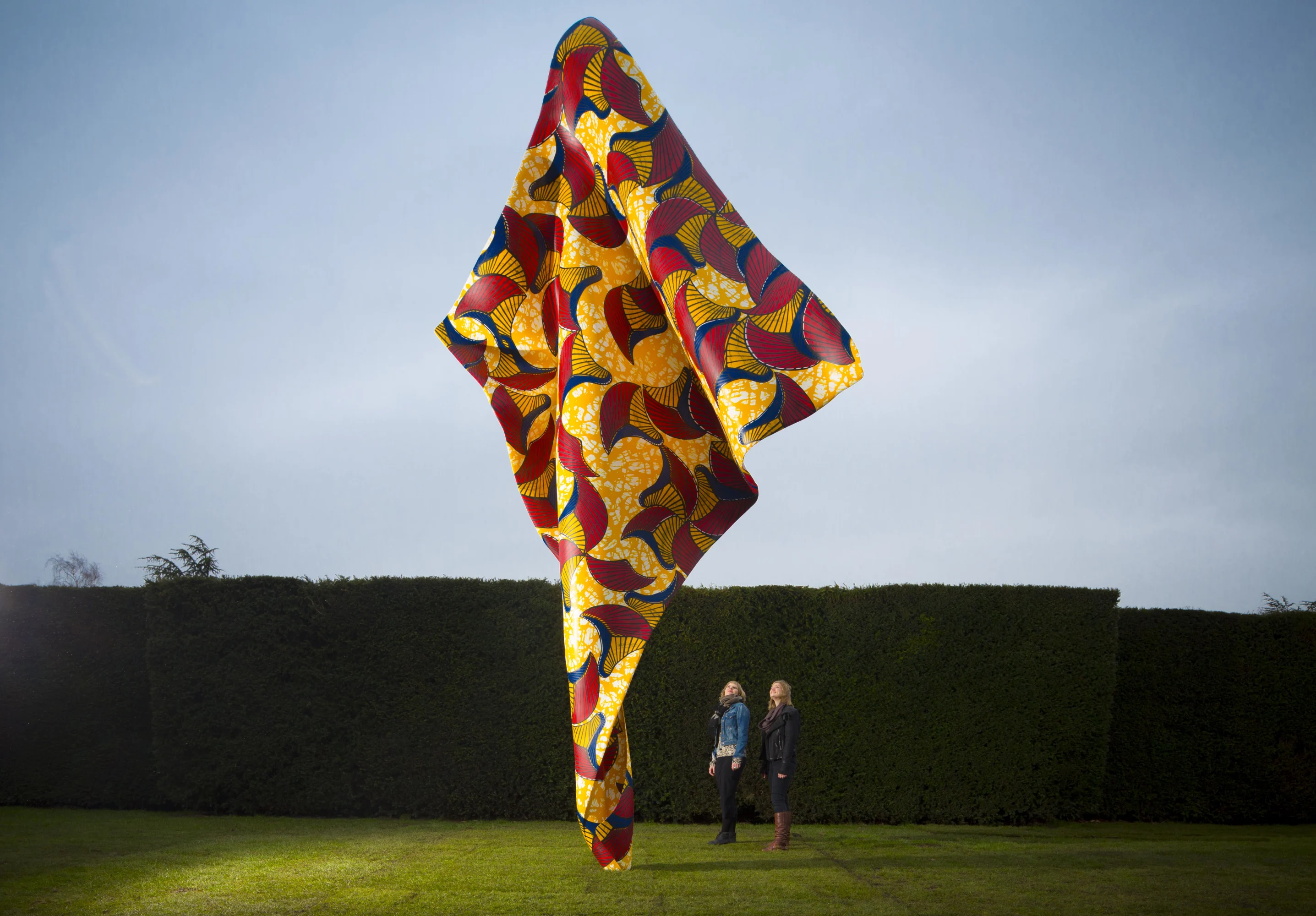
Yinka Shonibare MBE: FABRIC-ATION
Overview
Taking place in three of YSP’s indoor galleries and the open air, FABRIC–ATION featured over 30 vibrant works from the period 2002–2013 including sculpture, film, photography, painting and collage, with many works never before seen in the UK. This major exhibition was sponsored by Guaranty Trust Bank.
Born in London in 1962, Shonibare moved to Nigeria when he was three, later returning to the UK to study art. His work shrewdly explores and confounds stereotypes of race and class, engaging with ideas around identity and authenticity as well as dislocation, multiculturalism, global food production and revolution, often addressed through playful conceits. This approach is part of his determination to avoid being categorised: Shonibare accepted an MBE in 2004, adopting the title into his working name, saying, “it was the last thing you would have expected of me”.
Two major commissions, the first works in a new series for the UK, premiered in the Park’s Arcadian landscape. Standing over six metres tall, Wind Sculptures (2013) are richly coloured, painted with Shonibare’s signature batik-inspired surface pattern. Although constructed in fibreglass, they appeared fluid like fabric caught by the breeze. These followed the success of Shonibare’s commissions for the Royal Opera House, London (2012) and the Fourth Plinth in Trafalgar Square (2010).
FABRIC–ATION offered a unique opportunity for audiences to trace Shonibare’s creative development over the past decade at a time when he is increasingly active in creating work for public space.
Further new work on show in the galleries included Revolution Kids (2012), half-human, half-animal embodiments of an insurrectionist spirit, waving replicas of Colonel Gaddafi’s golden gun and carrying an obligatory Blackberry. Marking the first time that Shonibare has used taxidermy in his practice, these hybrid figures embody the artist’s response to the London Riots where social media was used as a revolutionary tool, and the Arab Spring with its overriding sense of transformation through insurgence. These powerful works reflect the currency and topical fervency of Shonibare’s work in what was a timely exhibition.
Highlights also included two Flying Machine sculptures (2012) piloted by fabric-skinned aliens, one of which was suspended from the ceiling as though coming in to land. Alien Man on Flying Machine (2011) and Alien Woman on Flying Machine (2012) reference the artist’s interest in early flight, space exploration and science fiction while connoting ideas of foreign citizenry and strangeness.
Another thematic concern, which particularly resonates with YSP’s 18th century-designed landscape, is Shonibare’s ongoing preoccupation with the historic pursuits of the aristocracy. Shonibare has described his use of bright batik fabrics as “signifiers of ‘African-ness’ insofar as when people first view the fabric they think of Africa”. Ironically this archetypal, ‘authentic’ African fabric was first mass-produced in Holland, based on Indonesian batik, and sold into West Africa in the 19th century. FABRIC–ATION examined how Shonibare brings together two seemingly irreconcilable tropes in works such as Little Rich Girls (2010), where batik fabrics are fashioned into Victorian high-society costumes from the height of the British Empire. The clothed body is at the heart of Shonibare’s practice, also figuring in works such as Fire, Water, Earth, and Air (all 2010), and this exhibition explores how Shonibare subverts the ability of clothing to fix identity in place and time.
A film, Addio del Passato (2012) played in the sublime surroundings of YSP’s 18th century Chapel (2 March–30 June 2013). This visually seductive and moving piece features a singer in the guise of Lord Nelson’s estranged wife Frances Nisbet, performing Violetta’s poignant death aria of the same name from Giuseppe Verdi’s 19th century opera La Traviata. Shonibare investigates both the possibilities presented by the fanciful re-enactment of historical events and the complex symbolism represented by Admiral Nelson in many of his works. Another example in this exhibition included Fake Death (2011), a photographic series which re-imagines Nelson’s death in painting, including the pre-Raphaelite painter Henry Wallis’s The Death of Chatterton (1856); Cannonball Heaven (2011).
The dramatic work Egg Fight (2009), inspired by Jonathan Swift’s Gulliver’s Travels, demonstrates Shonibare’s consideration of conflicting ideologies. This large-scale scene references the ‘Big-Endians’ and ‘Little-Endians’ from Swift’s tale, who argue over which end of a boiled egg should be broken: a foolish and superficial difference used to satirically represent contemporary divisions between Protestants and Catholics. Similarly political, and opening up a debate surrounding contemporary issues, Shonibare’s eye-catching, child-sized Food Faeries (2011) and intricate Climate Shit (2009) collages featured in this exhibition, engaging with discourses around global food production and referencing famine, damage to the environment and the oil industry.
FABRIC–ATION offered invaluable insight into this challenging, political, frivolous and celebratory artist, providing the rare opportunity to enjoy the range of Shonibare’s diverse practice through the dynamic setting of YSP’s indoor exhibition spaces and the open air.
Yorkshire Sculpture Park
West Bretton, Wakefield WF4 4LG
UK
Tel +44 (0)1924 832631
10.00–17.00 YSP Centre (Information Desk and Centre Shop)
10.00–16.00 YSP Centre (The Kitchen)
10.00–16.00 The Weston (The Weston Gallery, Restaurant and Shop)
10.00–16.00 Underground Gallery
10.00–16.00 The Chapel (currently closed)
11.00–16.00 Longside Gallery (currently closed)
17.00 Gates locked
Selected Artworks
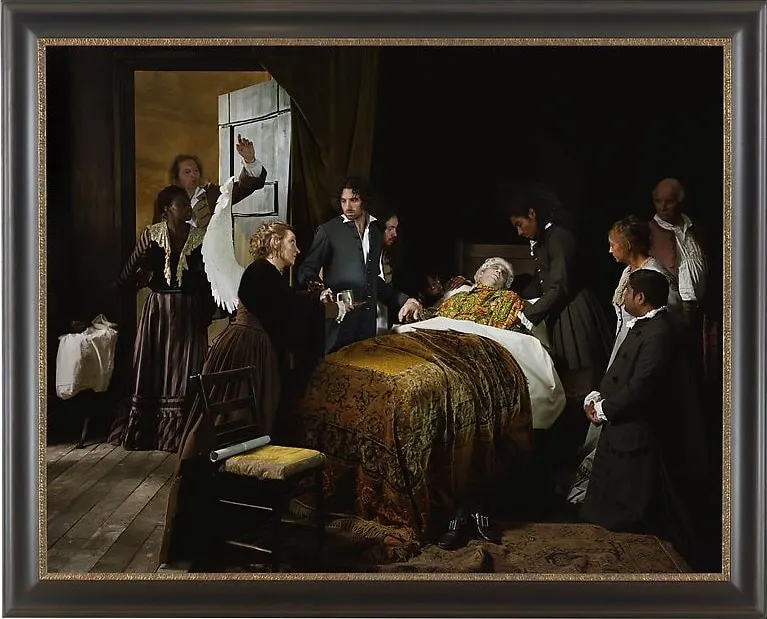
Installation Views
